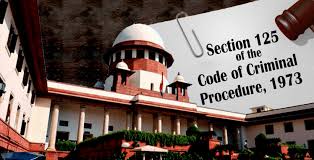Rakia Imran
A case regarding conjugal rights was issued before a Division-Bench comprising of CJI Sanjiv Khanna and Justice Sanjay Kumar in the Supreme Court, affirming that a wife can retain the right to maintenance, even if she is not living with her husband, despite the existence of a decree on restitution of conjugal rights. The concern before the Bench was that, “Will a husband, who secures a decree for restitution of conjugal rights, stand absolved of paying maintenance to his wife by virtue of Section 125(4) of the Code of Criminal Procedure, 1973, if his wife refuses to abide by the said decree and return to the matrimonial home?”
A ubiquitous domestic violence case was filed by the wife-appellant hailing from Jharkhand, who had suffered a miscarriage of her child and was reportedly ill-treated by the husband-respondent, to which the Court held that the wife-appellant has sufficient cause to not return to the matrimonial home. Thus, ruling that the husband would not be stripped from his responsibilities towards the financial maintenance of his wife despite a decree of restitution of conjugal rights not complied with by the wife.
The Court validated the wife’s appeal against the Jharkhand High Court’s decision, annulling the Family Court’s order directing the husband-respondent to give Rs.10,000/- per month maintenance to the wife-appellant. The Court clarified that although the restitution decree is pertinent, it is not definitive in establishing a wife’s right to maintenance. The Court must independently assess the wife’s reasons for living apart while deciding her maintenance plea.
The husband’s argument was also annulled by the Court who argued that the refusal of the wife to return to her matrimonial home and abide with him resulted in negation of Cr.P.C. under Section 125(4),1973, and hence defended the dismissal of the wife’s maintenance under the provision. Countering this, the Court said that Section 125 is a social justice provision drafted to shield against destitution and lack of livelihood. It is inclusive of even divorced wives under its spectrum, irrespective of the ongoing marital disputes.
Accurate citation was drawn from Kirtikant D. Vadodaria v State of Gujarat and another (1996) and Amrita Singh v Ratan Singh and another (2018), where it was cited that “The mere passing of a decree for restitution of conjugal rights at the husband’s behest and non-compliance therewith by the wife would not, by itself, be sufficient to attract the disqualification under Section 125(4) Cr.P.C.,1973”. Furthermore, in this case it was also contended by the Court that there can be no hard and fast rule in this regard and it must invariably depend on the distinctive facts and circumstances obtaining each particular case. The ruling would be contingent on the facts of every individual case and it would have to be decided on the strength of the material and evidence available, whether the wife still had valid and relevant reasons to refuse to live with her husband, despite such a decree.
Ultimately, the Court allowed the Wife’s appeal and reaffirmed the Family Court’s order for payment of maintenance under Section125 Cr.P.C.,1973.
Case Title: Rina Kumari v Dinesh Kumar Mahto and another
Citation: 2025 LiveLaw (SC) 47
Bench: CJI Sanjiv Khanna and Justice Sanjay Kumar

